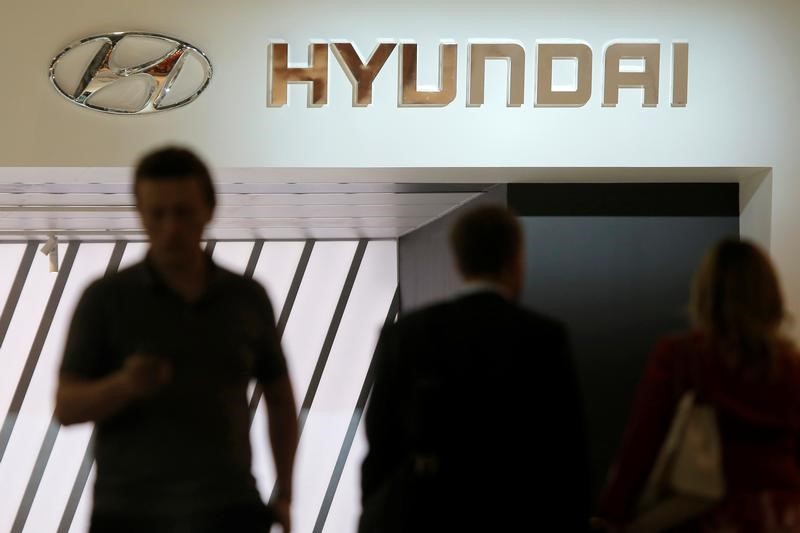In the dynamic realm of India's automotive industry, two formidable titans, Maruti (NS:MRTI) and Hyundai, reign supreme. A recent report by Bernstein showcased their journey through the ever-evolving landscape of passenger vehicles (PVs) that embodies a saga of innovation, competition, and adaptation.
As these giants navigate the shifting currents of consumer preferences and technological advancements, their strategies and performances become integral chapters in the narrative of India's automotive prowess.
At the heart of their rivalry lies the divergence in their product portfolios. Hyundai, with its premium allure, offers 11 meticulously crafted models that epitomize safety and sophistication. From the sleek lines of the i20 to the commanding presence of the Creta, Hyundai's vehicles cater to discerning consumers seeking a blend of style and substance.
In contrast, Maruti, the undisputed leader in the Indian PV market, boasts a comprehensive lineup of 17 models, ranging from the humble Alto to the rugged Vitara Brezza. Maruti's strength lies in its ability to cater to a diverse range of consumer segments, from budget-conscious buyers to those seeking utility and reliability.
Hyundai's focus on SUVs has propelled it to the forefront of the market, with these models accounting for a significant portion of its sales. This emphasis on premium SUVs has translated into higher average selling prices (ASPs), positioning Hyundai as a brand synonymous with luxury and performance. Maruti, on the other hand, retains its stronghold in the affordable segment, offering vehicles known for their fuel efficiency and low maintenance costs.
In the quest for market dominance, both Maruti and Hyundai have waged a relentless battle, each vying for a larger slice of the PV pie. Hyundai, with its consistent market share of 14-17%, has carved a niche for itself in the premium sedan and mid-size SUV segments. However, its growth has been hampered by product gaps and limited rural reach, constraining its ability to expand its market share beyond urban centers.
Maruti, on the contrary, commands a lion's share of the market, with a staggering 45% share of passenger car sales touchpoints in the domestic market. Its extensive distribution network, comprising over 3,000 outlets, ensures that Maruti's presence is felt across every corner of the country. This formidable reach, coupled with a diverse product lineup covering 95% of the PV market, cements Maruti's position as the undisputed leader in the Indian automotive landscape.
In the race for technological supremacy, Hyundai holds a distinct advantage, boasting access to a wide array of cutting-edge technologies, including hybrid, hydrogen, and battery electric vehicle (BEV) platforms. This technological prowess has enabled Hyundai to stay ahead of the curve, offering consumers innovative solutions for a sustainable future.
Maruti, although leveraging its partnership with Toyota for technological support, faces challenges in keeping pace with Hyundai's advancements. However, Maruti's forte lies in its cost competitiveness, derived from its expertise in small car manufacturing. This inherent advantage allows Maruti to maintain its position as a market leader, even in the face of technological disruptions.
As the automotive industry undergoes a paradigm shift towards electric mobility, both Maruti and Hyundai have outlined ambitious plans to capitalize on this emerging trend. Hyundai, with its focus on battery electric vehicles (BEVs) and compressed natural gas (CNG) cars, aims to achieve a 20% EV penetration by FY30.
Maruti, on the other hand, is gearing up to introduce six EV models by 2030, targeting a 15% share of the EV market. Despite Hyundai's lead in EV technology, Maruti's strong focus on hybrids and CNG vehicles positions it as a formidable competitor in the race towards electrification.
In the realm of financial performance, Hyundai's premium positioning has translated into higher earnings and margins, outpacing Maruti in recent years. Hyundai's emphasis on premiumization and SUVs has enabled it to command higher ASPs, leading to superior profitability.
However, Maruti's relentless pursuit of cost efficiency remains its trump card, allowing it to maintain strong margins despite intense competition. Maruti's focus on near-term momentum and profitability has garnered favor among investors, with analysts maintaining an "Outperform" rating on the stock.
With the automotive landscape poised for transformation, investors are presented with a myriad of opportunities and challenges. While Hyundai's lead in earnings and technology paints a promising picture for long-term growth, Maruti's resilience and market dominance make it an attractive investment proposition in the near term.
Analysts recommend a cautious approach, emphasizing the importance of understanding the nuances of each company's strategy and market positioning. While Hyundai's premium allure may appeal to investors seeking exposure to luxury and innovation, Maruti's mass appeal and strong fundamentals make it a safer bet in the current market environment.
As India's automotive giants embark on a journey towards electrification and innovation, the stage is set for a captivating saga to unfold. Hyundai's pursuit of premiumization clashes with Maruti's mass appeal, shaping the narrative of India's automotive landscape.
In this high-stakes game, fueled by technological advancements and changing consumer preferences, only time will tell which titan emerges victorious in the race towards innovation, profitability, and sustainable growth.
You can get InvestingPro at a steep discount of up to 69%, for INR 216/month, for a very limited time. Investors are already taking advantage of such a mouth-watering price to ramp up their investing game. In case you are finally ready to up your investing journey, Click here before time runs out.
X (formerly, Twitter) - Aayush Khanna
